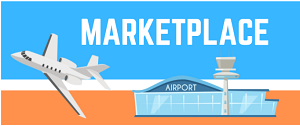
Funding General Aviation Airports for Self-Sufficiency
NATA is collaborating with industry experts to explore the key factors shaping today’s aviation business ecosystem. Stay tuned for upcoming editions of the Aviation Business Journal as we continue to spotlight insights across various industry segments. General aviation (GA) airports form the backbone of the U.S. aviation system. These airports support essential services such as air ambulance, flight training, aerial firefighting, and business travel in diverse communities across the country. Yet despite their critical role, most GA airports face chronic funding challenges. With limited revenue streams and increasing capital upgrades falling on local sponsors, airports must explore all available tools to achieve financial sustainability. Challenges in Funding General Aviation Infrastructure The FAA’s 2025–2029 National Plan of Integrated Airport Systems (NPIAS) includes 3,287 federally funded public-use airports.[i] Of these, 88% are classified as general aviation with fewer than 2,500 annual enplanements from scheduled (part 121) and non-scheduled (part 135) commercial operators. As such, these airports primarily serve light GA aircraft. NPIAS airports are eligible to receive federal funds collected from users of the national airspace system based on the principle that those who use the system should pay for it. The Airport and Airways Trust Fund (AATF) collects revenue from passenger tickets, cargo shipments, and fuel sales which is distributed to NPIAS airports through the Airport Improvement Program (AIP). Federal fuel taxes are the sole means general aviation users contribute to the AATF. In 2024, non-commercial fuel taxes generated $166 million, just 0.9% of the $18.3 billion total in AATF excise tax revenue,[ii] while aviation gasoline taxes from light GA users accounted for only $3 million, or 0.016%.[iii] Meanwhile, general aviation airports received $841 million in FY2024 AIP grants, representing 31% of the total $2.7 billion in AIP funding.[iv] General aviation airports are usually owned and operated by local municipalities, referred to as



















